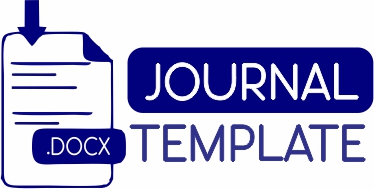APAKAH TERDAPAT PENGARUH MOTIVASI BELAJAR TERHADAP KEMAMPUAN BERPIKIR KRITIS MATEMATIS MELALUI SELF EFFICACY ?
DOI:
https://doi.org/10.24269/ed.v8i2.2974Keywords:
learning motivation, self efficacy, mathematical critical thinking skillsAbstract
This research is based on students always thinking that mathematics is a subject that is difficult to understand, thus causing students to be lazy and not have the enthusiasm to learn mathematics and think about solving mathematics problems. This results in students doing the questions as they please and not thinking when working on math problems. This research aims to determine the influence of learning motivation on mathematical critical thinking skills through the self-efficacy of class VII students at SMP Islam Ma'arif 02 Malang City in the 2023/2024 academic year. Using a quantitative approach with the observational/expost facto method, this research involved 73 class VII students of SMP Islam Ma'arif 02 Malang City, consisting of classes VII-A, VII-B, VII-D. Sampling was carried out using the cluster random sampling technique. Data was collected through questionnaires and test questions. The results of the research show that there is a direct influence of learning motivation on self-efficacy of 0.458, a direct influence of learning motivation on mathematical critical thinking skills of 0.319, a direct influence of self-efficacy on mathematical critical thinking abilities of 0.293, and an indirect influence of X1 on Y2 through Y1, namely 0.293 ×0.458 = 0.134.
References
Amar, M. F. (2024). Peran Kemampuan Komunikasi Interpersonal Pendidik dalam Menumbuhkan Self-Efficacy. Jurnal Multidisiplin Ilmu, 2(1), 1–13. https://edujavare.com/index.php/Aafiyah/issue/archive
Afifah, S. N., & Kusuma, A. B. (2021). Pentingnya Kemampuan Self-Efficacy Matematis Serta Berpikir Kritis Pada Pembelajaran Daring Matematika. Dalam Mathematic Education Journal MathEdu (Vol. 4, Nomor2). http://journal.ipts.ac.id/index.php/
Ambarwati, S., Suhartono, S., & Nurhasanah, N. (2021). Pengaruh Kepercayaan Diri dan Motivasi Belajar terhadap Kemampuan Berpikir Kritis pada Siswa Sekolah Dasar. Edukatif : Dalam Jurnal Ilmu Pendidikan, 3(4), 1974–1984. https://doi.org/10.31004/edukatif.v3i4.1047
Hutnaleontina, P., Kusumastuti, S., & Hijrah, M. (2024). Buku Ajar Metode Statistika 1 (Efitra & W. Gustiani, Ed.). Jambi: PT. Sonpedia Publishing Indonesia.
Marsita, Y., & Nuriadin, I. (2024). Analisis Kemampuan Berpikir Kritis Matematis Siswa Dalam Menyelesaikan Soal Cerita SPLDV ditinjau dari Disposisi Matematis. Dalam Jurnal MATH-UMB.EDU (Vol. 11, Nomor 2).
Mirnawati, M., Rukmigarsari, E., & Fuady, A. (2021). Hubungan Motivasi Belajar dan Kepercayaan Diri terhadap Kemampuan Pemecahan Masalah Matematis Siswa Kelas VIII di SMP Kristen Waikabubak. JP3, 8.
Pranatawijaya, V. H., Widiatry, W., Priskila, R., & Putra, P. B. A. A. (2019). Penerapan Skala Likert dan Skala Dikotomi Pada Kuesioner Online. Jurnal Sains dan Informatika, 5(2),128–137. https://doi.org/10.34128/jsi.v5i2.185
Pratama, A. Y. (2023). Pengaruh Self Efficacy Dan Motivasi Belajar Terhadap Kemampuan Berpikir Kritis Matematis Siswa. Jurnal Riset Pendidikan Matematika Jakarta, 5(1), 1–9. https://doi.org/10.21009/jrpmj.v5i1.23021
Sukma, Y., & Priatna, N. (2021). Pengaruh Self-Efficacy terhadap Kemampuan Berpikir Kritis Siswa Pada Mata Pelajaran Matematika. Jurnal Ilmiah Soulmath : Jurnal Edukasi Pendidikan Matematika, 9(1), 75–88. https://doi.org/10.25139/smj.v9i1.3461
Ulfa, M. (2019). Strategi Preview , Question , Read , Reflect , Recite , Review (PQ4R) Pada Pemahaman Konsep Matematika. Mathema Journal, 1.
Zainuddin, M. (2020). Metodologi Penelitian Kefarmasian dan Kesehatan (2 ed.). Airlangga UniversityPress. https://books.google.co.id/books?id=z3DIDwAAQBAJ&pg=PA75&hl=id&source=gbs_toc_r&cad=2#v=onepage&q&f=false
Zega, Y. (2020). Hubungan Self Efficacy Terhadap Motivasi Belajar Dalam Pembelajaran Matematika. Didaktik, 14. https://www.researchgate.net/publication/360264507
Downloads
Published
How to Cite
Issue
Section
License
Authors who publish their manuscripts in this journal agree to the following terms:
- The copyright on each article belongs to the author.
- The author acknowledges that Edupedia Journal has the right to be the first to publish under a Creative Commons Attribution 4.0 International (Attribution 4.0 International CC BY 4.0) license.
- Authors may submit articles separately, arranging for the non-exclusive distribution of manuscripts that have been published in this journal to other versions (e.g., sent to the author's institutional repository, publication into books, etc.), acknowledging that the manuscript was first published in the Journal. Edupedia.






